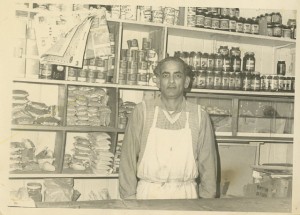Pakistani Diaspora: An Overview
Sonia Malik
Since the 1950s, when the first Pakistanis started immigrating to the UK, they have come a long way, in terms of social and economic status, education and political standing.
British Pakistanis, the second largest ethnic minority group in the UK, are now more affluent, better educated, more egalitarian (with more and more women of Pakistani origin taking up careers) and, after the May 2015 general elections, have greater political representation than ever before.
These changes are in large part down to the gradual integration of Pakistanis into British society, as the children of immigrants benefit from the hard work done by their parents. In the words of one first-generation Pakistani immigrant, quoted in The Pakistani Muslim Community: Understanding Muslim Ethnic Communities, a 2009 study:
“More of our young people are going into higher education and professional jobs. Our children have the tools to change their lives for the better which we did not have.”
However, the integration of Pakistanis in British society, and how they identify themselves, varies considerably. Pakistanis living in Yorkshire and Lancashire, for example, are likely to identify themselves as Muslims before identifying themselves as Pakistanis, whereas some first-generation British Pakistanis identify themselves by their caste and region rather than by their religion or country of origin. Third-generation British Pakistanisare more likely to choose to be identified as part of a South Asian diaspora rather than as Muslim Pakistanis, but this is limited to highly educated professionals.

While there has been steady progress in the social standing of newer generations, many challenges remain. Perhaps the most pressing are extremism and Islamophobia. Pakistanis make up a large proportion of the British Muslim population, and hence are directly affected.
For example, an Equality and Human Rights Commission report states that people of Pakistani origin are 52 times more likely to be stopped and interrogated at UK airports than any other minority ethnicity
On the other hand, British security agencies havebeen criticised recently for failing to prevent British Muslims from travelling to war-torn Syria.
Economic challenges also remain. According to government figures, 58%of British Pakistanis are considered ‘poor’, compared to a UK average of 21%. Some 66% of Pakistani families are in the low-income bracket, more than any other ethnic group.
The role of women is still a sensitive issue. Though progress has been made in many ways, unemployment for British Pakistani women stands at almost 20%, compared to only 3% for white women, and those employed have lower incomes. Incidents of forced marriage and so-called ‘honour’ killing have also still to be eradicated.
Tackling these problems will require concerted efforts by organisations such as the British Pakistan Foundation as well as political engagement by the Pakistani diaspora and local leaders of Pakistani origin.

Ten MPs of Pakistani origin, from three different parties,won seats in the May 2015 elections in the UK, a record number. As Dawn, a Pakistani newspaper, noted in an editorial on 10 May:
It is hoped that the increased presence of Pakistani-origin MPs in the British parliament will help address many of these outstanding problems in a progressive, judicious fashion, since these individuals serve as a bridge between the British system and their community.
British Pakistan Foundation Celebrates Historic Election Victory: 15 MPs of Pakistani Origin Elected to UK Parliament
The British Pakistan Foundation (BPF) is thrilled to announce
British Pakistan Foundation Denounces Racially Insensitive Language
The British Pakistan Foundation (BPF) condemns in the strongest





Anonymous
14th December 2021 at 11:25 am4.5